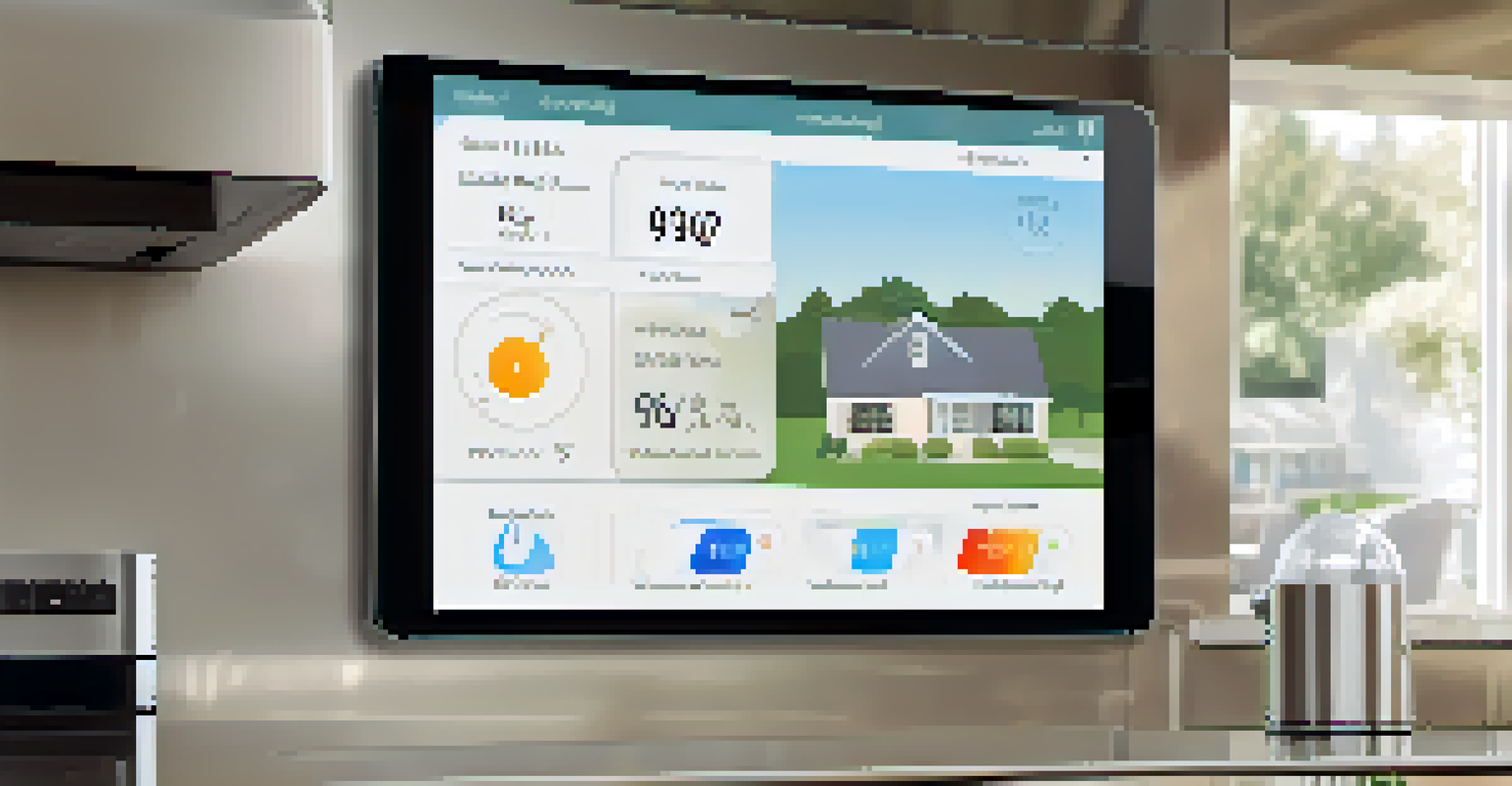The Importance of Inspection Follow-Ups After Closing

Understanding the Role of Inspections in Real Estate
When buying a property, inspections are a key step in identifying potential issues. They help buyers make informed decisions and negotiate repairs with sellers. However, inspections are not just a one-time event; they lay the groundwork for ongoing property maintenance.
An ounce of prevention is worth a pound of cure.
By understanding what inspections entail, buyers can appreciate their importance beyond the closing table. Inspections provide a roadmap, highlighting areas that may need attention in the future. This proactive approach can save homeowners both time and money in the long run.
Moreover, embracing this mindset fosters a sense of responsibility. Homeownership is not only about enjoying your new space but also about maintaining it. Regular follow-ups can help ensure that the property remains a safe and comfortable place to live.
Why Follow-Ups Matter After Closing
Follow-ups after closing serve as a crucial check-in to ensure that any issues identified during the inspection have been addressed. They help buyers feel secure in their investment and provide an opportunity to catch any new problems early on. This can be especially important in older homes or properties that have been through renovations.

Additionally, follow-ups can strengthen the relationship between buyers and real estate professionals. By demonstrating care and commitment, agents can build trust, which may lead to referrals or repeat business down the line. It's all about creating a lasting connection that goes beyond the initial sale.
Lastly, homes can change over time due to wear and tear or environmental factors. Regular follow-ups ensure that homeowners stay informed about their property’s condition, allowing them to take timely action when necessary.
Identifying Problems Early Through Follow-Ups
One of the biggest advantages of inspection follow-ups is the ability to identify problems early. Whether it's a small leak or a crack in the foundation, catching issues before they escalate can save homeowners from costly repairs. A proactive approach can make all the difference in property maintenance.
The bitterness of poor quality remains long after the sweetness of low price is forgotten.
Consider a scenario where a homeowner discovers a small water stain on the ceiling. If they conduct a follow-up inspection, they might find that the stain is a result of a minor plumbing issue rather than a major roof leak. This early detection can lead to simple repairs rather than extensive renovations.
Regular follow-ups can also help homeowners keep track of routine maintenance tasks. By clarifying what needs attention, they can create a more structured maintenance schedule, ensuring nothing falls through the cracks.
Enhancing Property Value through Regular Check-Ins
A well-maintained property naturally holds more value. By conducting follow-up inspections, homeowners can identify areas for improvement, which can enhance the property's overall market value. This proactive maintenance can lead to better returns if they decide to sell in the future.
For instance, a homeowner who regularly checks on their roof and performs necessary repairs is likely to have a more appealing property than one who neglects these tasks. Buyers are often willing to pay a premium for homes that are in great condition, making follow-ups a smart investment.
Moreover, maintaining the property enhances the overall neighborhood's appeal. Well-kept homes contribute to a positive community image, which can further increase property values over time.
Building Stronger Relationships with Professionals
Follow-ups after closing can foster stronger relationships between homeowners and their real estate agents, inspectors, or contractors. When agents check in, it shows they genuinely care about their clients' well-being and satisfaction. This can lead to a long-term partnership that benefits both parties.
For example, if a homeowner has a positive experience with their agent during follow-ups, they are more likely to recommend that agent to friends and family. Personal referrals are invaluable in the real estate industry, and follow-ups can be the catalyst for these connections.
Additionally, when homeowners regularly interact with professionals, they gain valuable insights into property maintenance and market trends. This knowledge can empower them to make informed decisions about their investment.
Creating a Sustainable Homeownership Experience
Sustainable homeownership goes beyond just living in a house; it involves being mindful of its condition and future needs. Regular follow-ups encourage homeowners to engage with their property actively. This mindset fosters a culture of sustainability, where issues are addressed before they become bigger problems.
A homeowner who regularly inspects their property not only ensures its longevity but also contributes to environmental sustainability. By addressing issues like poor insulation or leaky pipes, they can reduce energy consumption and waste.
Moreover, this proactive approach can lead to a more enjoyable living experience. A well-maintained home is not just a financial investment; it's a space where memories are made and families thrive.
Embracing the Future of Property Maintenance
As technology continues to evolve, the future of property maintenance is becoming more innovative. Tools like smart home technology and inspection apps can streamline the follow-up process, making it easier for homeowners to stay informed. Embracing these advancements can enhance their overall experience.
For instance, a smart home monitoring system can alert homeowners to issues like water leaks or temperature changes, prompting timely follow-ups. This integration of technology and property management can make homeownership more efficient and less stressful.

Ultimately, the future of property maintenance is about being proactive rather than reactive. By adopting a forward-thinking mindset, homeowners can ensure their properties remain safe, functional, and valuable for years to come.